Comparing Two 1TB NVMe Drives with Same NAND, Same Controller: XPG SX8200 Pro vs HP EX950
by Billy Tallis on February 6, 2019 11:30 AM ESTSequential Read Performance
Our first test of sequential read performance uses short bursts of 128MB, issued as 128kB operations with no queuing. The test averages performance across eight bursts for a total of 1GB of data transferred from a drive containing 16GB of data. Between each burst the drive is given enough idle time to keep the overall duty cycle at 20%.
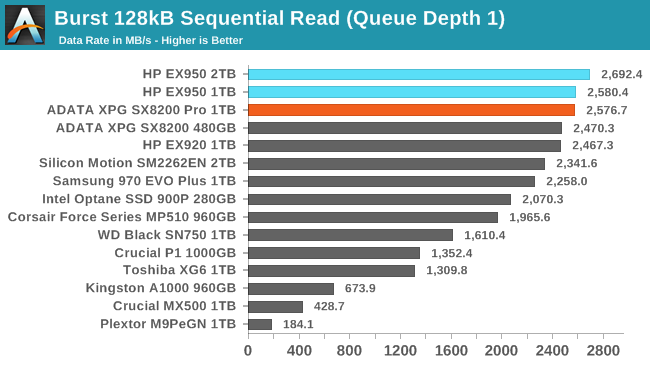
The retail SM2262EN drives offer the best QD1 sequential read performance, slightly faster than the earlier SM2262 drives and a clear improvement over the SM2262EN engineering sample we tested.
Our test of sustained sequential reads uses queue depths from 1 to 32, with the performance and power scores computed as the average of QD1, QD2 and QD4. Each queue depth is tested for up to one minute or 32GB transferred, from a drive containing 64GB of data. This test is run twice: once with the drive prepared by sequentially writing the test data, and again after the random write test has mixed things up, causing fragmentation inside the SSD that isn't visible to the OS. These two scores represent the two extremes of how the drive would perform under real-world usage, where wear leveling and modifications to some existing data will create some internal fragmentation that degrades performance, but usually not to the extent shown here.
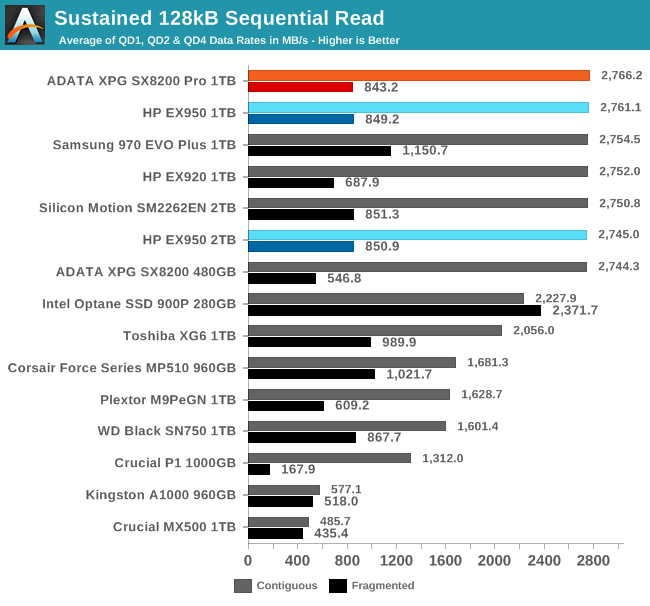
On the longer sequential read test that includes some higher queue depths, the SM262EN drives provide top tier performance, but the Samsung 970 EVO Plus has a clear advantage when reading data that was not originally written sequentially.
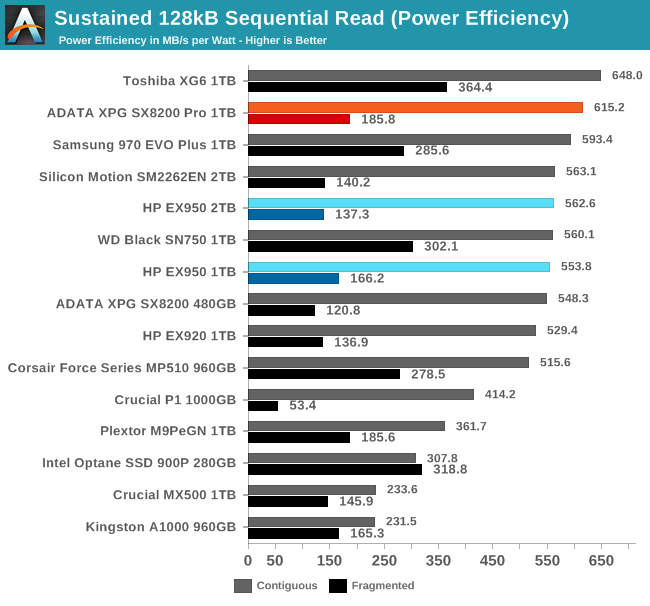 |
|||||||||
| Power Efficiency in MB/s/W | Average Power in W | ||||||||
The power efficiency of the ADATA SX8200 Pro is second only to the Toshiba XG6 and slightly better than the Samsung 970 EVO Plus, though it and the other SM2262EN drives have subpar efficiency when reading fragmented data.
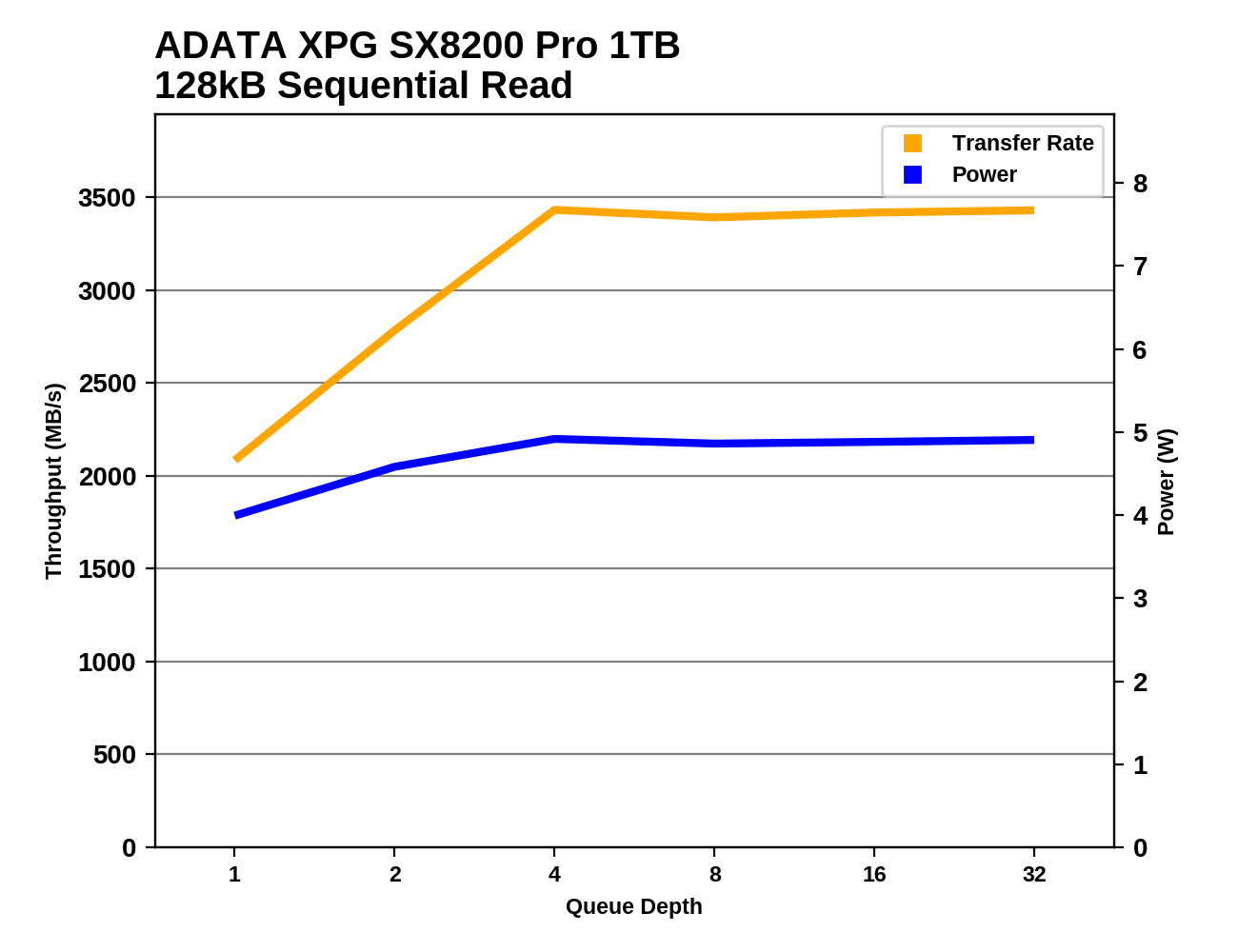 |
|||||||||
The retail SM2262EN drives hit their full sequential read speed at QD4 and hold steady through the rest of the test with the fastest read speeds we've measured from consumer SSDs. The Samsung 970 EVO Plus has about the same average at low queue depths thanks to better QD2 performance, but after that it takes until QD16 to reach its full speed.
Almost all of the NVMe SSDs that deliver sequential read speeds of greater than 2GB/s require more power than the ADATA SX8200 Pro, and of the few that are more efficient, none can come as close to the PCIe 3 x4 throughput limit.
Sequential Write Performance
Our test of sequential write burst performance is structured identically to the sequential read burst performance test save for the direction of the data transfer. Each burst writes 128MB as 128kB operations issued at QD1, for a total of 1GB of data written to a drive containing 16GB of data.
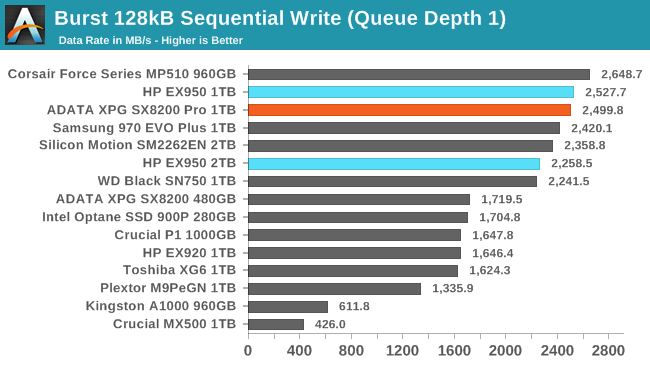
The QD1 burst sequential write performance of the SM2262EN drives is much better than the earlier SM2262 drives, but the improvement isn't enough to beat the Phison E12-based Corsair MP510. The 1TB HP EX950 and ADATA SX8200 are faster than the 2TB model, which is also a bit slower than the 2TB SM2262EN engineering sample was.
Our test of sustained sequential writes is structured identically to our sustained sequential read test, save for the direction of the data transfers. Queue depths range from 1 to 32 and each queue depth is tested for up to one minute or 32GB, followed by up to one minute of idle time for the drive to cool off and perform garbage collection. The test is confined to a 64GB span of the drive.
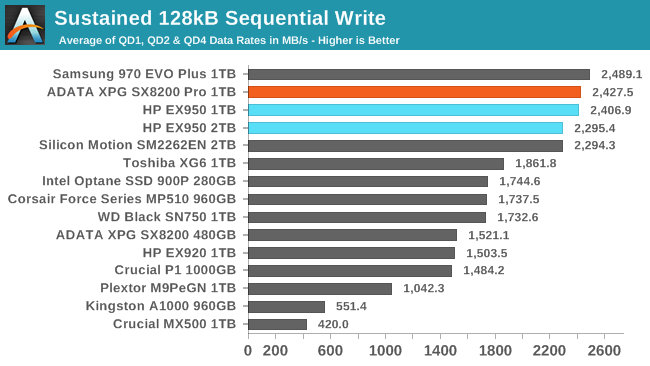
On the longer sequential write test that includes some higher queue depths, the Samsung 970 EVO Plus is the fastest, and the SM2262EN drives are the only competitors that come close. The 2TB EX950 is again slightly slower than the 1TB drives.
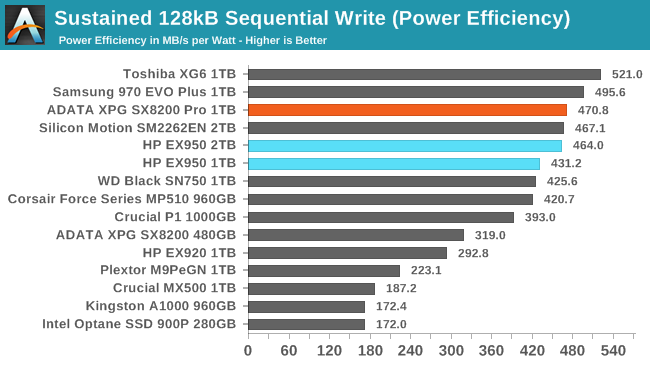 |
|||||||||
| Power Efficiency in MB/s/W | Average Power in W | ||||||||
The 970 EVO Plus and Toshiba XG6 both deliver slightly better power efficiency on the sustained sequential write test than any of the SM2262EN drives. The ADATA SX8200 Pro continues to use less power than the HP EX950 of the same capacity, but the 2TB EX950 ends up with a comparable efficiency score to the ADATA due to being both slower and less power-hungry.
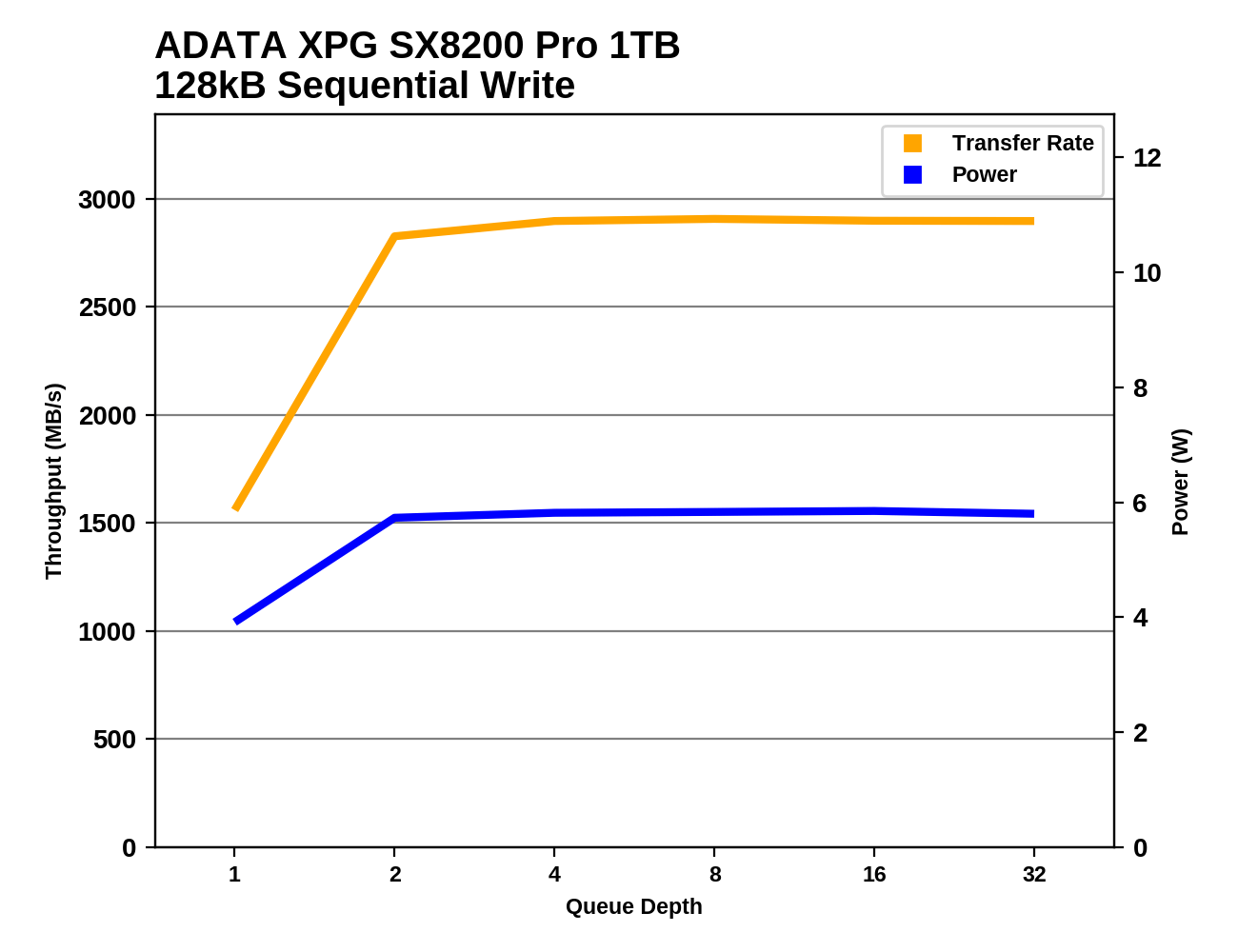 |
|||||||||
At QD2 the 1TB SM2262EN drives are very close to full sequential write performance, but the 2TB EX950 doesn't hit full speed until QD4. All three have steady performance through the higher queue depths, because this test doesn't come close to filling their large SLC caches.
Compared against the entire database of test results, the power efficiency of the ADATA SX8200 Pro doesn't really stand out; of the relatively few SSDs that provide similar levels of performance, several require less power.


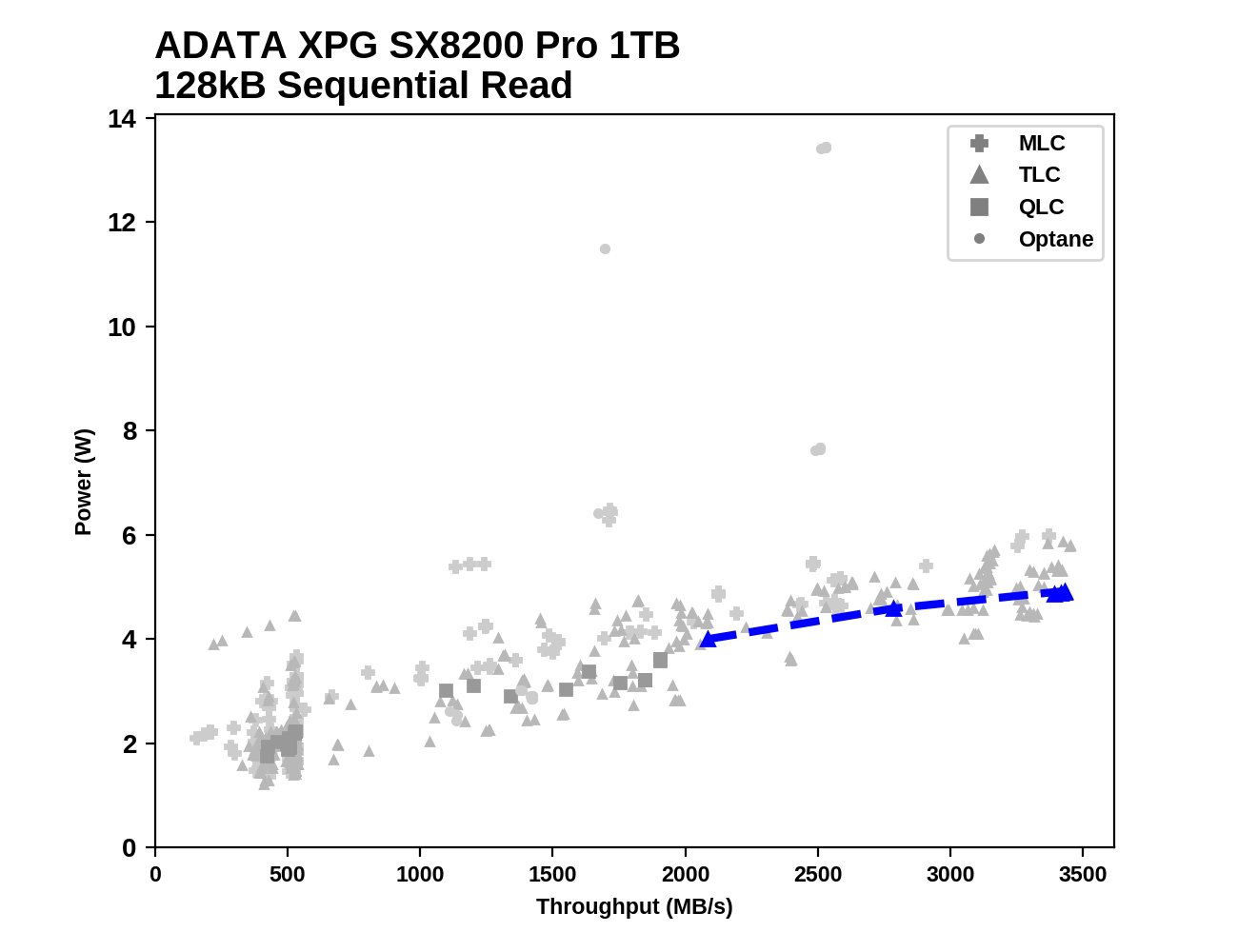
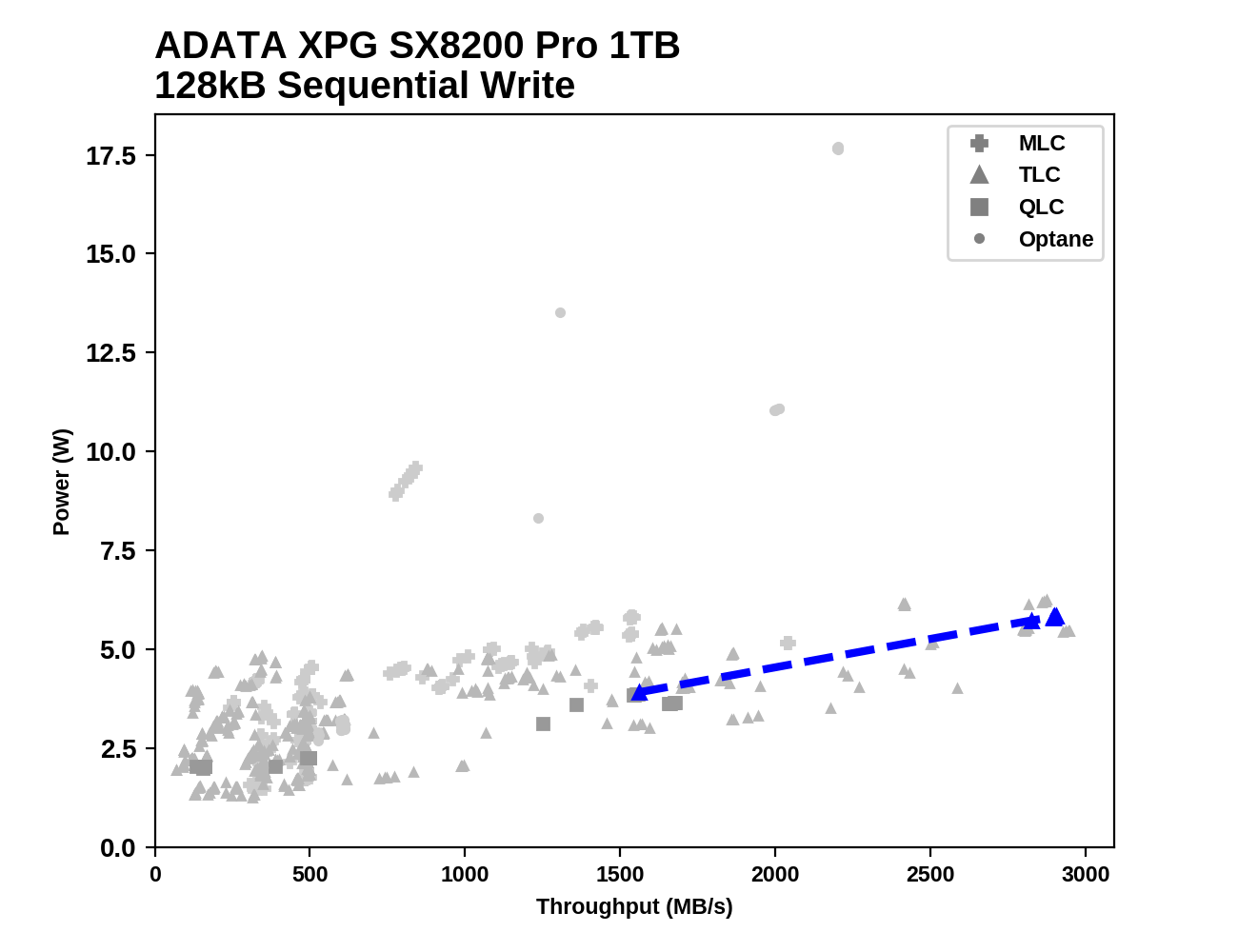








42 Comments
View All Comments
mrdigdug - Monday, July 20, 2020 - link
Just receive an Adata sx8200 pro 512G today, and it uses SM2262 controller instead (SM2262G AB). Very disappointed in Adata!